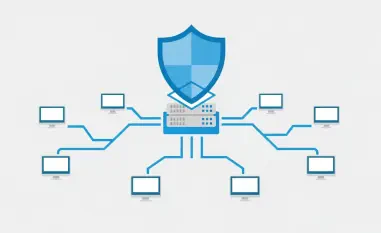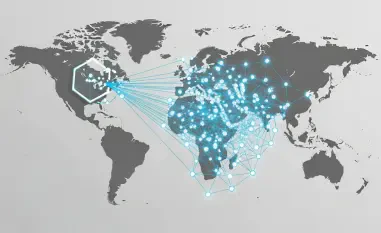Amidst the growing complexities of cybersecurity, Google stands at the forefront of innovation, unveiling a myriad of AI-driven solutions that are reshaping traditional approaches to digital defense. At the RSA Conference this year, Google’s advancements in security were prominently showcased, with a clear emphasis on expanding its security and threat intelligence portfolio. A significant revelation at the event was the unveiling of the latest Mandiant M-Trends report, which highlighted persistent threats like exploits, phishing, and credential theft that continue to plague the financial sector as a primary target. These insights underline the pressing need for more sophisticated, intelligent security measures that can effectively combat evolving cyber threats and protect sensitive data from malicious actors.
Google bolstered its Unified Security platform by introducing several cutting-edge features aimed at enhancing the effectiveness and efficiency of cybersecurity efforts. Among these improvements are real-time threat insights, automated malware analysis, and enhanced attack surface visibility, all powered by the advanced capabilities of Google’s Gemini AI. By harnessing the power of AI, Google aims to equip security teams with the tools necessary to swiftly and accurately identify and respond to threats. In an effort to further streamline security operations, Google introduced a new Composite Detections tool. This innovative feature links disparate security events, enabling detection and management of multistage attacks, and minimizing the occurrence of false positives and negatives.
AI-Driven Advancements in Security Operations
In a significant stride towards transformative cybersecurity solutions, Google unveiled ambitious plans for security operations centers (SOCs) driven by autonomous AI agents. These Agentic Security Operations Centers are designed to revolutionize the way security is managed by integrating AI agents capable of performing complex tasks without human intervention. The recent introduction of Alert Triage and Malware Analysis Agents highlights Google’s commitment to innovation, as these AI agents are expected to autonomously manage security alerts and conduct thorough malware analyses. Scheduled to enter preview for selected customers by mid-year, these agents promise to enhance operational efficiency and threat mitigation.
The introduction of SecOps Labs marks another strategic step by Google in driving the adoption of AI capabilities. SecOps Labs offers early access to experimental AI tools, enabling organizations to test and refine their security operations. Some of these innovative tools include the Natural Language Parser Extension, the Detection Engineering Agent, and the Response Agent, all of which are designed to enhance automation and fortify security defenses. By providing this laboratory environment, Google aims to foster innovation and collaboration among security professionals, paving the way for more robust security practices and solutions across industries.
Promoting Collaborative and Open Security Ecosystems
Google’s vision for an open security ecosystem is evident through its efforts to promote cross-vendor collaboration within AI-driven security operations. The announcement of the open-sourcing of Model Context Protocol servers and the introduction of the Agent2Agent protocol underline Google’s commitment to fostering a collaborative environment where multiple vendors can work together to tackle security challenges. By facilitating interoperability and shared learning among security tools and platforms, Google seeks to advance the overall effectiveness of cybersecurity efforts and promote a cooperative approach to safeguarding digital assets.
Further emphasizing its dedication to providing comprehensive cybersecurity solutions, Google announced upcoming enhancements to its AI Protection service. Key among these advancements are multi-modal capabilities designed to address threats targeting AI workloads. These enhancements are aligned with the MITRE ATLAS framework, ensuring that Google’s solutions are rooted in recognized industry standards for security and threat intelligence. By continually evolving its offerings, Google demonstrates a proactive approach to addressing emerging challenges in the cybersecurity landscape.
A New Era in Cybersecurity
In today’s increasingly complex cybersecurity landscape, Google is leading innovation with AI-driven solutions that redefine digital defense strategies. At this year’s RSA Conference, Google’s commitment to advancing security was evident with the introduction of new features to their security and threat intelligence offerings. A highlight was the release of the latest Mandiant M-Trends report, identifying persistent threats such as exploits, phishing, and credential theft, which predominantly target the financial sector. This underscores the urgent demand for intelligent security systems that can tackle ever-evolving cyber threats and safeguard sensitive information from malicious actors.
To enhance its Unified Security platform, Google introduced cutting-edge features designed to improve cybersecurity efforts’ effectiveness and efficiency. These include real-time threat insights, automated malware analysis, and enhanced attack surface visibility, all driven by the powerful Gemini AI. AI empowers security teams to swiftly identify and respond to threats. Google’s new Composite Detections tool connects different security events, aiding in detecting complex, multi-stage attacks and reducing false alarms.













